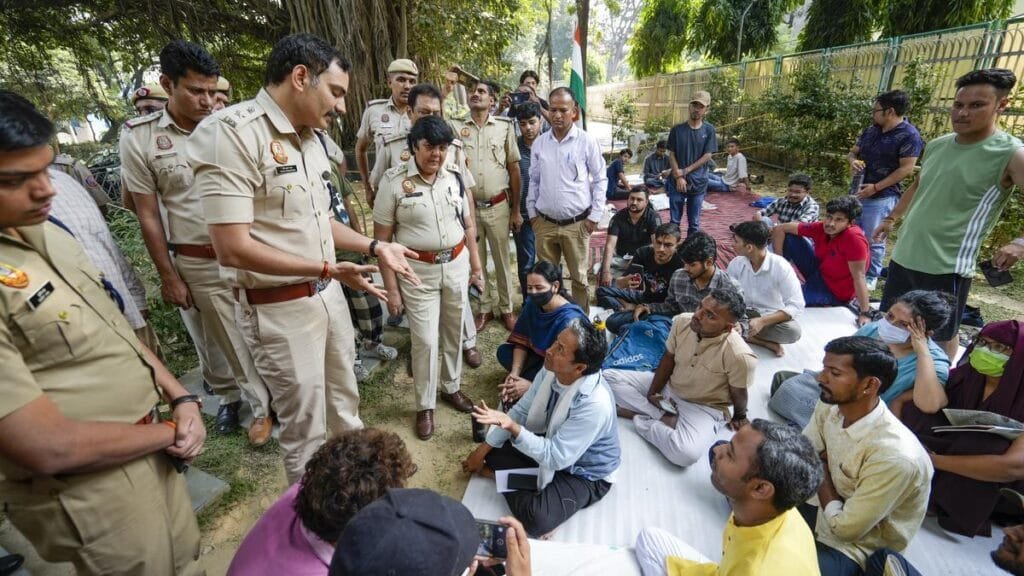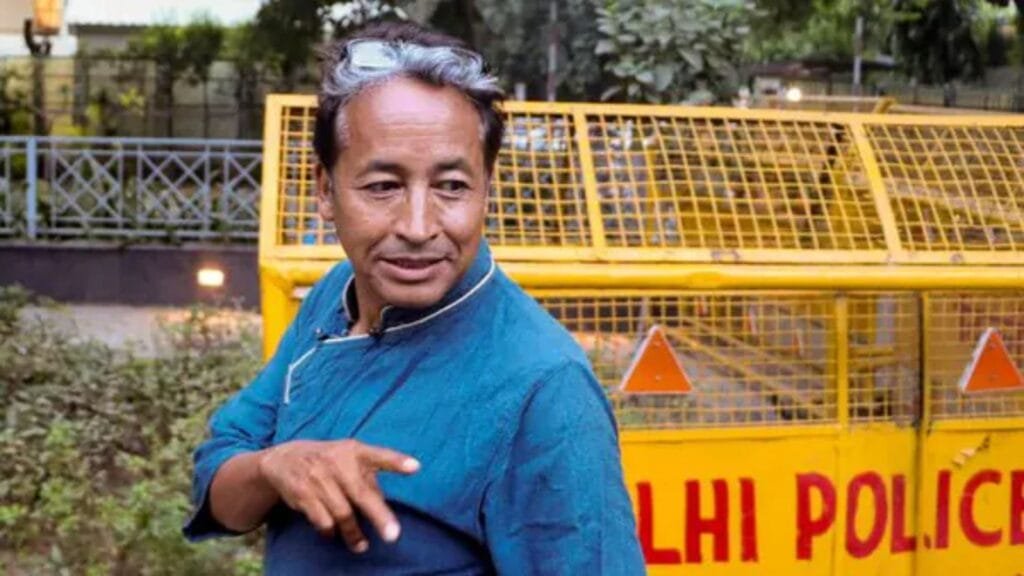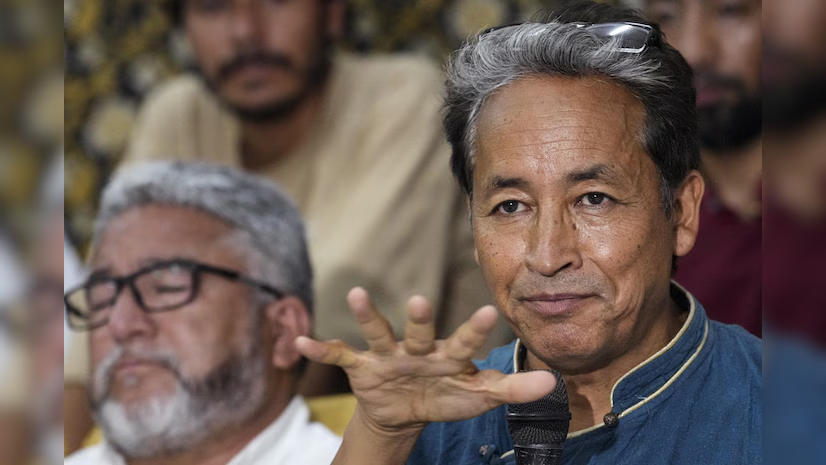Highlights:
The environmentalist and activist son of Ladakh, Sonam Wangchuk, and more than 20 supporters were detained by Delhi Police on 13 October 2024, protesting outside Ladakh Bhawan. This was done for the inclusion of Ladakh into the Sixth Schedule of the Indian Constitution that would then give Ladakh more self-governance powers. This non-violent protest, however, has set off heated debate about democracy in India, almost dubbing the occasion as a “blot on democracy” as Wangchuk says, since protesters were arrested in an iron-grip manner.
Why Was Sonam Wangchuk Protesting?
Sonam Wangchuk is a prominent Ladakhi figure and since the division of the region from Jammu and Kashmir last year in 2019, has been vocal about the demands of the region. The most important demand, as per Wangchuk, is for Ladakh to come under the Sixth Schedule of the Indian Constitution, wherein special provisions have been provided to tribal areas in some states of India’s northeastern region, namely Assam and Meghalaya. This would result in the addition of Ladakh autonomous councils with decision-making powers over land, education, and local governance if this were to be voted for.

A protestor, Wangchuk, launched the protest by initiating a hunger strike on 6th October 2024 outside Ladakh Bhawan. His supporters, mostly joining him in March from Leh, spoke of environmental as well as constitutional rights for the Ladakhi people, one of which involved statehood and a separate public service commission. Among other demands, it proposed separate Lok Sabha seats for Leh and Kargil districts.
Detentions and Controversy: A Blemish On Democracy?
The Delhi Police detained Wangchuk’s supporters, saying proper permission for protest had not been sought. Information that went around initially reported that Wangchuk was one of the detained. Correction later came in informing it was only his supporters who were taken to Mandir Marg police station while Wangchuk himself was not.

The police invoked the provisions under Section 163 of the BNSS, that prohibits congregating without authorization to legalize the detentions, which prohibit gathering. Wangchuk and his supporters had sought permission to protest at Jantar Mantar, asserts a senior police officer, but that is still pending, so when they changed their mind and chose Ladakh Bhawan as the protest venue, the police acted.
Wangchuk further went to criticize the act saying that it goes against the tenets of democracy which India professes. In a video posted on social media, he expressed deep regret that the “world’s largest democracy” could not accommodate a peaceful silent protest.
Several voices have come in his defence opining that permanent enforcement of such restrictions was unnecessary in the capital.
Political Reactions and the Growing Movement
Political controversy: The arrest has spilled into a broader political row with opposition leaders and civil society activism denouncing it as a serious civil liberties violation. The Leh Apex Body and Kargil Democratic Alliance, two groups that are this Ladakhi leader’s biggest fans, have been protesting since four years ago, pushing for more political representation and greater autonomy for Ladakh.
The protesters believe Sixth Schedule inclusion will ensure the distinct identity, culture, and sensitive environment of Ladakh are not further threatened by too many tourists or degradation. Wangchuk’s appeal to have a meeting with Prime Minister Narendra Modi on this issue remains unanswered.
What’s ahead for Ladakh and Wangchuk’s movement?
Sure, this is not the first time Wangchuk has had run-ins with the authorities over Ladakh’s future. For long, he has been campaigning in Ladakh for sustainable development and environmental conservation. His work has attracted global attention, especially in climate activism, for which he was awarded the Ramon Magsaysay Award in 2018.
The reason for inclusion of Ladakh in the Sixth Schedule is gaining momentum, especially at a time when environmental concerns are escalating in the region. Many have given an opinion that without greater autonomy, Ladakh will continue facing socio-economic and environmental crises. Detention of peaceful protestors has only amplified calls for dialogue between the government and people of Ladakh.
Conclusion: Democracy at a Crossroads?
The protest by Sonam Wangchuk and subsequent arrests have led to a wider debate on civil liberties in India. Though the government is well within its limits legally while enforcing restrictions on BNSS, the moral and democratic implications of curtailing protests without violence have become the centre of attraction for criticism. Of course, the labelling done by Wangchuk of the event as a “blot on democracy” struck a chord for many who fear that dissent is increasingly being stifled.
Still, the future remains uncertain in Ladakh, in whose demands Wangchuk stands firmly. This is one matter that will surely continue to capture the spotlight for some time to come. Whether the government will talk to Ladakh leaders meaningfully remains to be seen, but the message through Wangchuk and his supporters is plain: their fight for autonomy and recognition is very far from over.
For Latest News Updates Click Here
